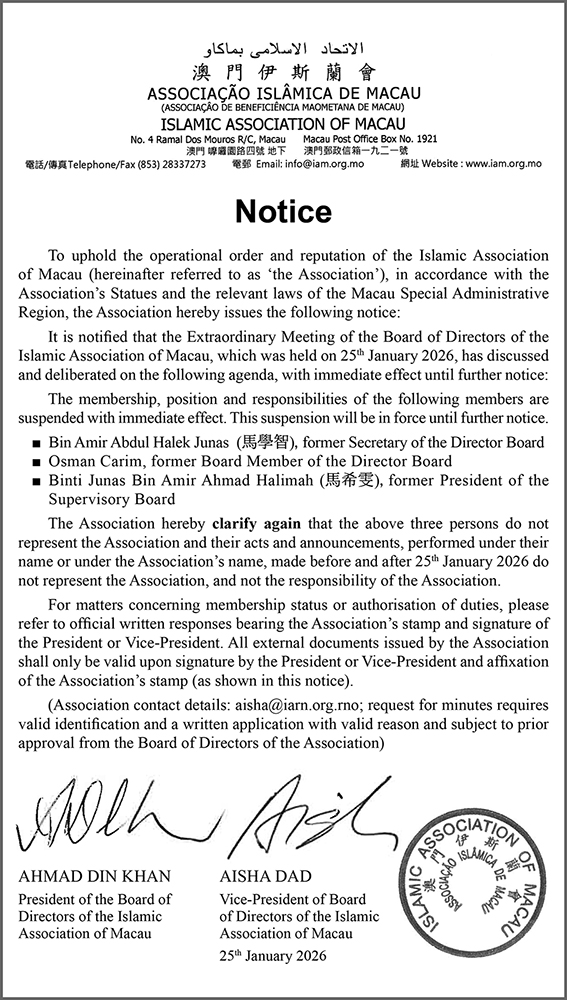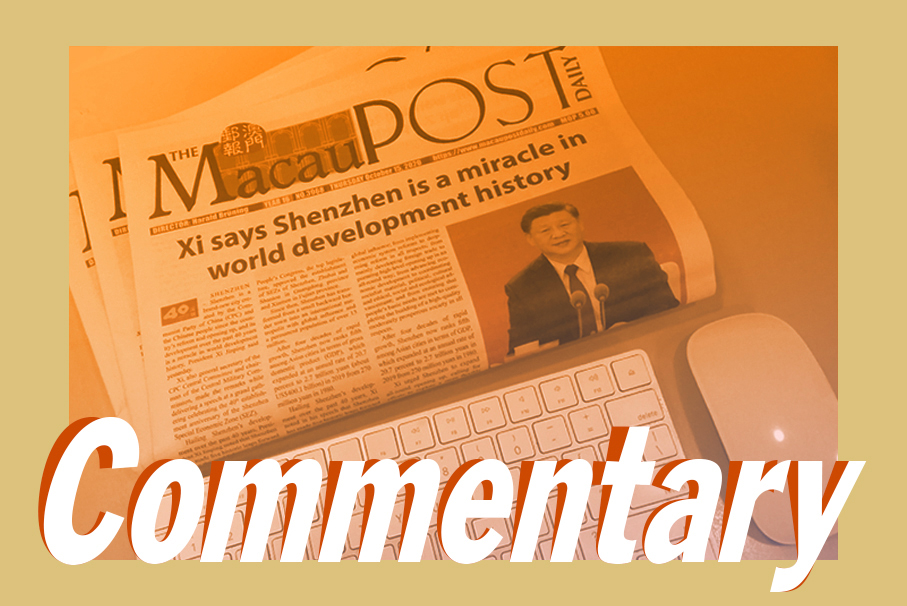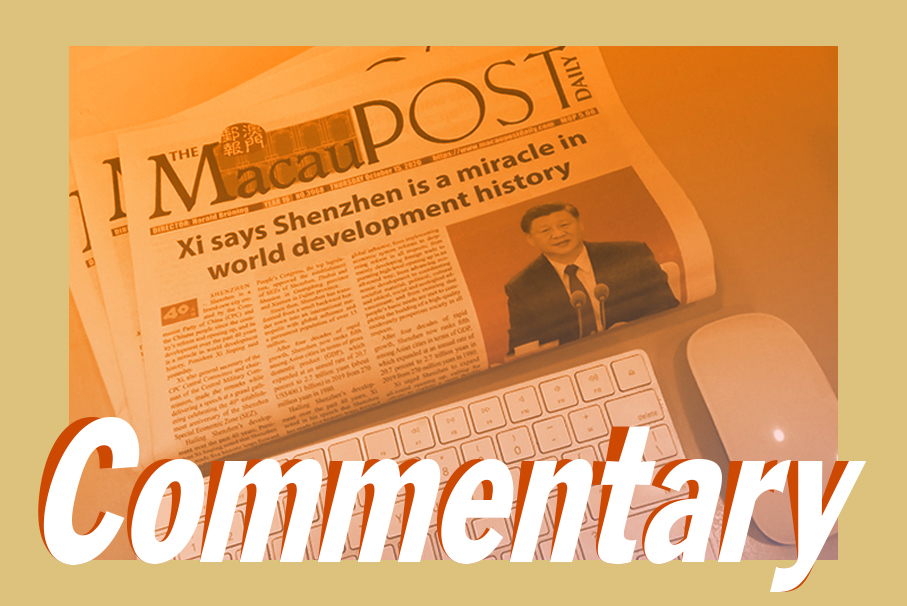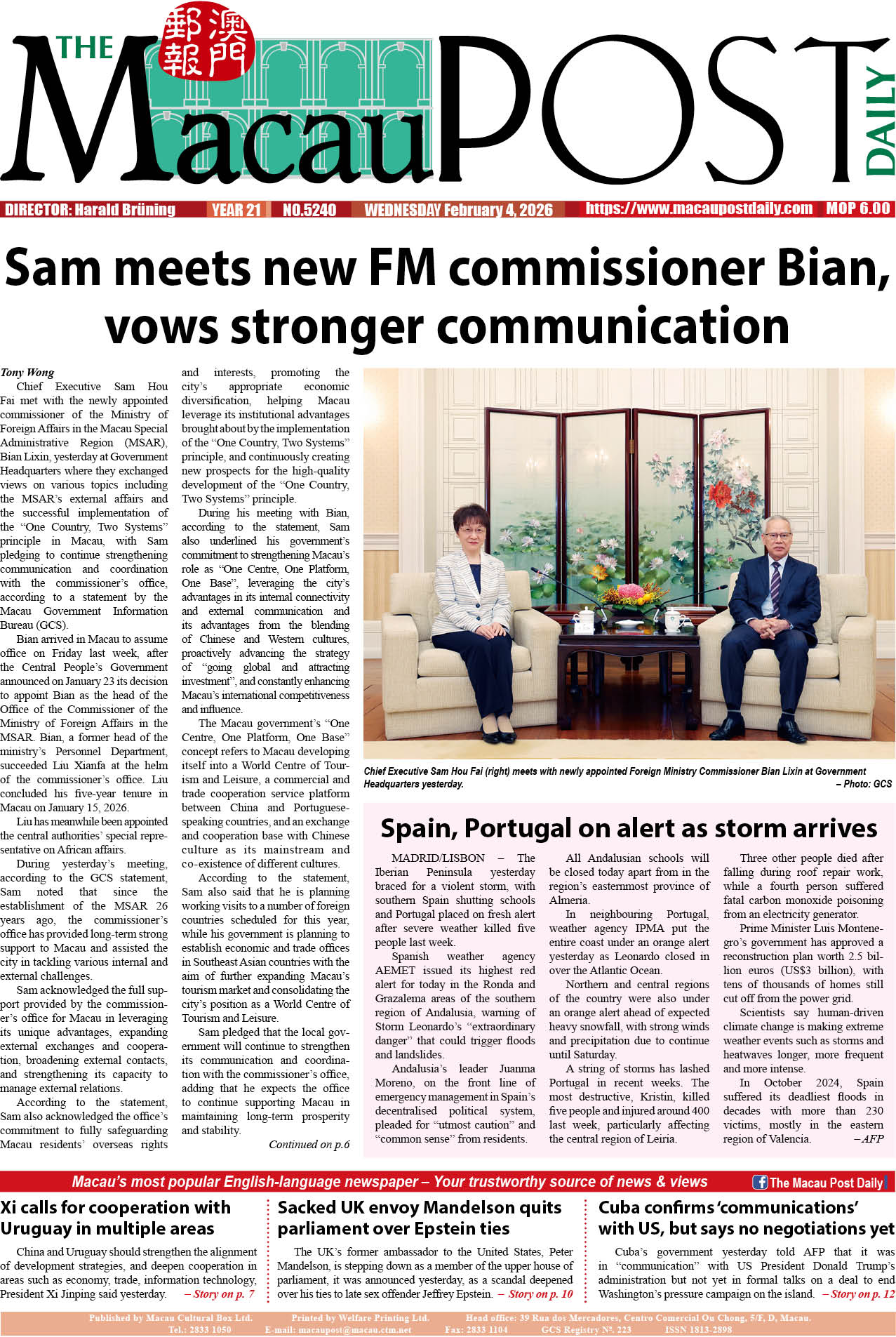Commentary by Ronnie Lins*
In recent years, the world has faced enormous challenges, and countries around the world have struggled to overcome many difficulties such as the COVID-19 pandemic, the structural imbalance of the global economy, the armed conflicts between countries, the intensification of social inequalities, and climate change.
While some countries have met the challenges and difficulties with greater success than others, one thing is certain we are all in the “same boat”. That’s why attempts to achieve success by implementing individualistic, unilateral policies by some countries will fail and instead have negative impacts on the world.
This brings us to Brazil. President Luiz Inácio Lula da Silva taking office after winning a fierce election might have momentarily divided the country, but with him at the helm of affairs, there is hope that the Brazilian government will build a better future by implementing policies to combat discrimination and eradicate social inequality.
China and Brazil follow independent foreign policies and both pursue sustainable development. Therefore, nothing could be more welcome than Lula’s visit to China, which could help establish a series of Sino-Brazilian partnerships for the benefit of both countries and those beyond.
The delegation that accompanies Lula to China is proof of the importance Brazil attaches to the visit. It will include important Brazilian ministers, officials and businesspeople. The idea is to ensure that Brazilian officials already know the outcomes of the talks between Lula and President Xi Jinping and start the process of implementing them as soon as they return home.
Perhaps Lula should discuss with Xi how China eradicated extreme poverty on schedule – end of 2020 – by lifting about 800 million people out of poverty in four decades. We know that, to succeed, a poverty alleviation campaign requires strong economic growth which will increase per capita income and a set of additional measures which will further improve the social conditions of these people.
For both presidents, the well-being of the people is a priority. Lula may want to know the details of China’s poverty alleviation campaign so he can implement similar measures to eradicate poverty in Brazil. The idea is to properly plan and effectively enforce measures to ensure that the large number of poor in Brazil get what they need, instead of suffering the negative effects of such a campaign.
To get an idea of the seriousness of poverty in Brazil, let’s look at data from the Brazilian Institute of Geography and Statistics (IBGE). According to the IBGE, about 17.9 million people in Brazil, or about 8.4 percent of the total population, were living in extreme poverty in 2021.
During his presidential campaign, Lula made a public commitment that in the first year of his presidency, he would ask the governors of the 27 federative units of Brazil to focus on three important infrastructure works for the benefit of the people. We are talking about 81 possibilities here. And given its expertise in this field, China will be able to help Brazil a lot.
Lula is also likely to ask the Chinese leadership to reinforce China’s trade with Brazil. Increasing the trade basket to include products with greater added value from Brazil is necessary, because Brazil needs to boost its economic growth and create more jobs.
In the new era, strengthening partnerships and cooperation in different areas of technology will be of great value to both countries. China is focused on realizing sustainable, innovation-driven high-quality development by, among other things, using artificial intelligence, robotics, the internet of things and biotechnology. The development of these technologies, the availability of commodities and other inputs, and self-sufficiency in food will be key to a country’s economic success in the coming years.
Besides, strengthening multilateral institutions and economic blocs such as BRICS should also receive special attention from the two presidents, because upholding multilateralism is fundamental to the success of countries. And the China-proposed Belt and Road Initiative (BRI) can play a key role in both upholding multilateralism and improving infrastructure connectivity and trade. The fact that it completes 10 years in 2023 also makes the Belt and Road Initiative important for the two countries. And by welcoming Belt and Road (B&R) projects, Brazil can help expand the initiative in South America due to its representative status in the region.
The environment and ecology are the other area that may feature in the talks between the two presidents, as China is implementing an effective environmental protection and biodiversity conservation program to combat climate change. China can get a close climate partner in Brazil, which has one of the most significant biological reserves on the planet. And together, they can set goals and take joint actions with other countries to the benefit of the world.
China and Brazil may also discuss how countries can coexist in peace and harmony. The two sides aim to help maintain global peace and are aware of the priority actions they need to take in order to better protect the environment and eradicate social inequalities. For this reason, the meeting of the presidents raises great hope.
*The author is director of the China-Brazil Center for Research and Business.
– Courtesy of China Daily

Brazilian President Luiz Inácio da Silva (second from right, front), accompanied by his wife Rosângela Lula da Silva (center), is welcomed upon arrival in Shanghai by Vice Foreign Minister Xie Feng (left, front) and two children last night. Brazil’s former president Dilma Rousseff (first from left, second row) was at the airport to welcome Lula and his wife. Rousseff has been president of the New Development Bank since last month. The bank, set up by the BRICS countries, in 2014 is headquartered in Shanghai. Lula will pay a state visit to China through Saturday. – Photo courtesy of Agência Brasil.









